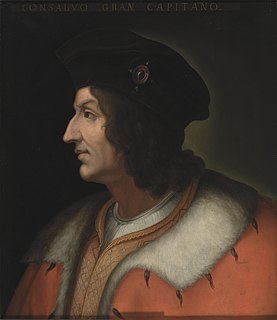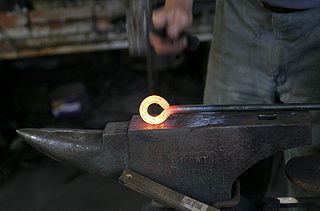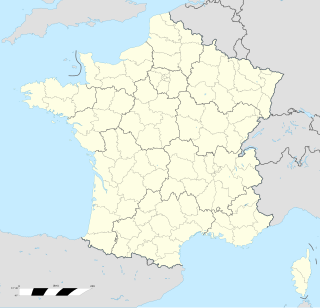The term Latino, along with its female Latina, is a noun and adjective often used in English, Spanish and Portuguese to refer to people in the United States with cultural ties to Latin America. In rare cases, it is also used to refer to Filipinos, who share many cultural characteristics with Latin Americans due to a history of rule by Spain and the United States, but who are also typically classified as Southeast Asian.

A surname, family name, or last name is the portion of a personal name that indicates a person's family.

Juan Sebastián Elcano was a Spanish explorer of Basque origin who completed the first circumnavigation of the Earth. After Magellan's death in the Philippines, Elcano took command of the carrack Victoria from the Moluccas to Sanlúcar de Barrameda in Spain.

A given name is the part of a personal name that identifies a person, potentially with a middle name as well, and differentiates that person from the other members of a group who have a common surname. The term given name refers to a name bestowed at or close to the time of birth, usually by the parents of the newborn. A Christian name is the first name which is given at baptism, in Christian custom.

Gonzalo Fernández de Córdoba y Enríquez de Aguilar, 1st Duke of Santángelo was a Spanish general and statesman who led successful military campaigns during the Conquest of Granada and the Italian Wars. His military victories and widespread popularity earned him the nickname "El Gran Capitán". He also negotiated the final surrender of Granada and later served as Viceroy of Naples. Gonzalo was a masterful military strategist and tactician. He was the first to introduce the successful use of firearms on the battlefield and he reorganized his infantry to include pikes and firearms in effective defensive and offensive formations. The changes implemented by Gonzalo were instrumental in making the Spanish army the dominant force in Europe for more than a hundred years. For his extensive political and military success, he was made Duke of Santángelo (1497), Terranova (1502), Andría, Montalto and Sessa (1507).
Spanish naming customs are historical traditions for naming children practised in Spain. According to these customs, a person's name consists of a given name followed by two surnames. Historically, the first surname was the father's first surname, and the second the mother's first surname. In recent years, the order of the surnames in a family is decided when registering the first child, but the traditional order is still largely the choice. Often, the practice is to use one given name and the first surname most of the time, the complete name is typically reserved for legal, formal, and documentary matters; however, both surnames are sometimes systematically used when the first surname is very common to get a more customized name. In these cases, it is even common to use only the second surname, as in "Lorca", "Picasso" or "Zapatero". This does not affect alphabetization: discussions of "Lorca", the Spanish poet, must be alphabetized in an index under "García Lorca" and not "Lorca".

The Irish are a nation and ethnic group native to the island of Ireland, who share a common Irish ancestry, identity and culture. Ireland has been inhabited for about 12,500 years according to archaeological studies. For most of Ireland's recorded history, the Irish have been primarily a Gaelic people. From the 9th century, small numbers of Vikings settled in Ireland, becoming the Norse-Gaels. Anglo-Normans conquered parts of Ireland in the 12th century, while England's 16th/17th-century (re)conquest and colonisation of Ireland brought many English and Lowland Scots people to parts of the island, especially the north. Today, Ireland is made up of the Republic of Ireland and the smaller Northern Ireland. The people of Northern Ireland hold various national identities including British, Irish, Northern Irish or some combination thereof.

Smith is a surname originating in England. It is the most prevalent surname in the United Kingdom, Australia, Canada, New Zealand and the United States, and the fifth most common surname in the Republic of Ireland. The surname Smith is particularly prevalent among those of English, Scottish and Irish descent, but is also a common surname among African Americans, which can be attributed either to black slaves being given the surname during slavery and never changing the name upon the end of the era of slavery and after the issuance of the Emancipation Proclamation or to descendants of interracial marriages. 2,442,977 Americans shared the surname Smith during the 2010 census, and more than 500,000 people share it in the United Kingdom. At the turn of the 20th century, the surname was sufficiently prevalent in England to have prompted the statement: "Common to every village in England, north, south, east and west"; and sufficiently common on the (European) continent to be "common in most countries of Europe".
A Portuguese name is typically composed of one or two given names, and a number of family names. The first additional names are usually the mother's family surname(s) and the father's family surname(s). For practicality, usually only the last surname is used in formal greetings.
Nadal is a surname of Catalan, Occitan, and Venetian origin. It stems from the Latin word for birthday, natalis. Notable people with the surname include:
A name in the Italian language consists of a given name, and a surname ; in most contexts, the given name is written before the surname.

Canté is a commune in the Ariège department in southwestern France.
A nobiliary particle is used in a surname or family name in many Western cultures to signal the nobility of a family. The particle used varies depending on the country, language and period of time. However, in some languages the nobiliary particle is the same as a regular prepositional particle that was used in the creation of many surnames. In some countries, it became customary to distinguish the nobiliary particle from the regular one by a different spelling, although in other countries these conventions did not arise, occasionally resulting in ambiguity. The nobiliary particle can often be omitted in everyday speech or certain contexts.
Antonio Fernández de Córdoba y Cardona, 5th Duke of Sessa, was a Spanish nobleman. He held the titles of Duke of Sessa, Duke of Soma, and Duke of Baena, among others.
A name in Romanian tradition consists of a given name (prenume) and a family name (surname). In official documents, surnames usually appear before given names.
Cordova or Córdova is a Spanish surname. Notable people with the surname include:
Gonzalo is a Spanish masculine given name.
Marzo is an Italian and Spanish surname. Marzo in both languages means March and the name originally indicated a special connection of its bearer to the third month of the year. Besides Spain and Italy its area of distribution includes most of the Spanish-speaking world and all countries with a considerable Italian diaspora.
Notable people with this name include:






